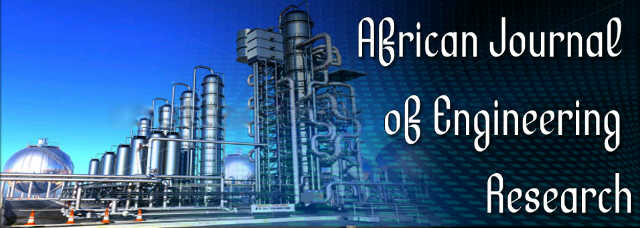Enhancing communication during the design process: A lean thinking approach
Ayman Ahmed Ezzat Othman and Ghada Nasser MosaadAfrican Journal of Engineering Research
Published: April 26 2023
Volume 11, Issue 1
Pages 1-16
Abstract
This research aims to investigate the role of Lean Thinking (LT) in enhancing communication during the design process. To achieve the abovementioned aim, a research methodology consisting of a literature review, case studies and survey questionnaire was designed to accomplish four objectives. Firstly, building a comprehensive background about the research topic through reviewing the nature of the design process, causes and impacts of poor communication during the design process, and LT. Secondly, presenting and analysing three case studies to validate the identified causes of poor communications and to examine the role of LT in enhancing communication during the design process. Thirdly, assessing the perception and application of Architectural Design Firms (ADFs) in Egypt towards the role of LT in enhancing communication during the design process. Finally, proposing an LT framework to enhance communication during the design process. Data analysis showed that the highest-ranked methods of communication in ADFs were “face-to-face” and “3D shots”. In addition, “unclear communication channels and responsibilities” and “poor communication management” was ranked the highest causes of poor communication during the design process, while “disputes between the client and the architects”, and “poor understanding of the client requirements” were ranked the highest impacts of poor communication. Furthermore, the LT principles that have the highest rank were “identifying client’s value” and “improving the workflow”. This research proposed a practical framework that can provide a roadmap to assist ADFs in integrating LT principles as an approach for enhancing communication during the design process.
Keywords: Communication, design process, lean thinking, architecture design firms.
Full Text PDFThis article is published under the terms of the Creative Commons Attribution License 4.0

